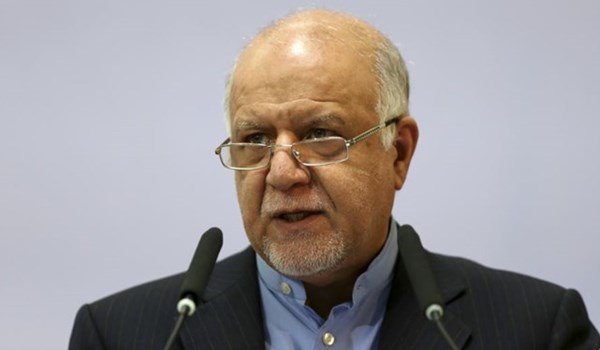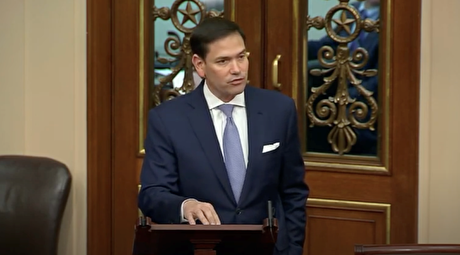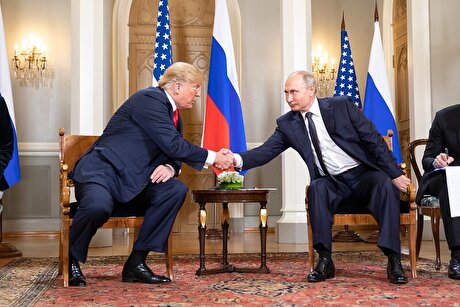
Oil Minister: Qatar Withdrawal to Be Examined


Namdar Zanganeh said on Tuesday that OPEC has major problems with some oil producers except Qatar, and the reasons for Qatar’s exit from the organization must be examined.
“Examining the reasons for Qatar’s exit from OPEC is a necessity,” Zanganeh said, adding, “OPEC has big problems from some oil producers which Qatar is not a part of.”
The veteran minister made the remarks ahead of the 175th OPEC meeting, which will be held in Austrian capital city of Vienna on Thursday.
Qatar said on Monday it will withdraw from OPEC to focus on gas in a swipe at Saudi Arabia.
Zanganeh did not elaborate on the issue, but he appeared to be noting that Qatar is not one of the problematic oil producers in OPEC.
Earlier on Tuesday, Iran’s OPEC Governor Hossein Kazempour Ardebili said the recent drop in oil prices inflicted $9 billion in losses on oil producing countries.
Iranian Ambassador to London Hamid Baeidinejad in a tweet on Tuesday criticized the Saudi-led year-long blockade against Qatar, saying that Riyadh's pressures have led to Doha's surprise withdrawal from the OPEC.
“Qatar’s surprise decision made as a result of prolonged economic and travel blockade imposed against Qatar by Saudi Arabia and its neighbors”, Baeidinejad said in a Twitter post, in a reaction to the news about Qatar’s withdrawal from OPEC.
“Qatar will withdraw from the Organization of the Petroleum Exporting Countries in January, as the Persian Gulf state faces a prolonged regional clash with rival Saudi Arabia. Saudi Arabia’s attempt to impose its policies against OPEC and increase of the role of non-OPEC members including Russia have undermined the effectiveness of the organization,” Baeidinejad wrote on his official Twitter account,
On June 5, 2017 some Arab countries led by Saudi Arabia, Bahrain and the UAE have officially severed ties with Qatar and closed air, road and sea lines with the country to put it under political and economic blockade.
These countries set out 13 conditions for resuming relations one of which was severing ties with Iran.
But Qatar considers it as breaching its national sovereignty and has not so far accomplished it.
Iran and Qatar by maintaining logical, principled relations which are based on international regulations are standing against avarice demands of some countries and coordinating their policies as regard regional issues.
In a relevant development on August 26, Iranian President Hassan Rouhani in a phone conversation with Emir of Qatar Sheikh Tamim bin Hamad Al Thani said Tehran is seeking strong and deep relations with Doha.
Stressing the importance of offering the business people and investors in the two countries with incentives, President Rouhani said strengthening port and maritime cooperation and establishing a joint shipping line between Iran and Qatar can accelerate the process of bilateral trade.
Meanwhile, Sheikh Hamad Al Thani appreciated Iran's support for Qatar in breaking the blockade imposed by Saudi Arabia.


Codelco seeks restart at Chilean copper mine after collapse

Hudbay snags $600M investment for Arizona copper project

Uzbek gold miner said to eye $20 billion value in dual listing

BHP, Vale offer $1.4 billion settlement in UK lawsuit over Brazil dam disaster, FT reports

Peabody–Anglo $3.8B coal deal on the brink after mine fire

A global market based on gold bars shudders on tariff threat

SSR Mining soars on Q2 earnings beat

Minera Alamos buys Equinox’s Nevada assets for $115M

Century Aluminum to invest $50M in Mt. Holly smelter restart in South Carolina

Samarco gets court approval to exit bankruptcy proceedings

US eyes minerals cooperation in province home to Reko Diq

Allegiant Gold soars on 50% financing upsize

Explaining the iron ore grade shift

Metal markets hold steady as Trump-Putin meeting begins

Trump to offer Russia access to minerals for peace in Ukraine

Gemfields sells Fabergé luxury brand for $50 million

Gold price stays flat following July inflation data

Eco Oro seeks annulment of tribunal damage ruling

Zimbabwe labs overwhelmed as gold rally spurs exploration, miner says

Samarco gets court approval to exit bankruptcy proceedings

US eyes minerals cooperation in province home to Reko Diq

Allegiant Gold soars on 50% financing upsize

Explaining the iron ore grade shift

Metal markets hold steady as Trump-Putin meeting begins

Trump to offer Russia access to minerals for peace in Ukraine

Gemfields sells Fabergé luxury brand for $50 million

Gold price stays flat following July inflation data

Eco Oro seeks annulment of tribunal damage ruling














